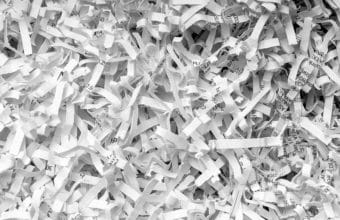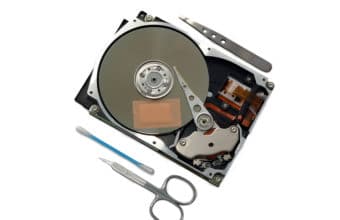Compliance
-
Companies Fail to Properly Destroy Data
According to a study released by the National Association for Information Destruction (NAID) in 2017, 40% of devices resold to the public still contained personally identifiable information (PII). The study reviewed 250 devices available through public resale channels, and relied only on downloadable software, in a process described as unsophisticated, in order to access PII. This led […]
read more -
The Danger of Being Careless about Document Shredding in a Medical Office
With the growth of electronic medical records (EMRs), many healthcare practices and facilities are moving away from purely physical records and into the realm of digital record keeping. This is made possible by advances in technology that ensure secure storage and access to digital records for healthcare professionals and patients alike. That said, many offices […]
read more -
Meeting New DoD Standards for Destroying Unclassified Information
You may be most familiar with the U.S. Department of Defense (DoD) as the government group responsible for managing our country’s military forces. However, this department also sees to the security of our nation by creating rules pertaining to information security. Generally speaking, businesses in the private sector are not legally obliged to follow DoD […]
read more -
7 Documents You Commonly Forget to Shred
North Dakota and South Dakota businesses are well aware of the need to shred documents containing confidential consumer data, financial information, and other highly sensitive records protected by law. As a rule of thumb, adopting a shred-all policy is best, but just in case, here are a few items your business should shred if you’re […]
read more -
Why Data Sanitization is Important at Every Stage of the Data Life Cycle
It seems like data breaches have become a daily occurrence, with only the largest breaches even making headlines anymore. Unless a breach hits Sony, Target, Capital One, or a government agency, chances are it’s not even newsworthy. This is troubling for businesses large and small, because it shows just how difficult it can be to […]
read more -
Document Shredding: What are the Legal Obligations?
Data destruction has always been serious business, due to the consequences of failing to properly protect consumer data, but with the growth of digital technologies, it has become even more important over the past few decades. Businesses now have to contend with a slew of consumer privacy laws related to both digital data and hard […]
read more -
Disposing of Your Patient Records the Right Way
As a North Dakota healthcare provider, your biggest concern is the health of your patients, but you also have to consider the security of the sensitive patient information you collect and store. In this day and age, most healthcare providers are working toward updating to EMR (electronic medical record) software, but this leaves you with […]
read more -
How Physical Destruction of IT Assets Can Leave Government Data Vulnerable
As with many business types, government entities deal with different levels of data, and even different levels of confidentiality. In some cases, data is perfectly harmless, but even if it doesn’t rise to the level of national security or consumer privacy, you don’t necessarily want it falling into the wrong hands. This is why government […]
read more -
Hard Disk Wiping: What’s the Magic Overwriting Standard?
Getting rid of old hard drives without proper precautions is a big “No-No”, particularly for businesses in South Dakota and North Dakota. Data must be erased before devices can be given away to employees, be donated to charitable organizations, or be resold for reuse. This is why many businesses rely on certified ITAD providers to […]
read more














